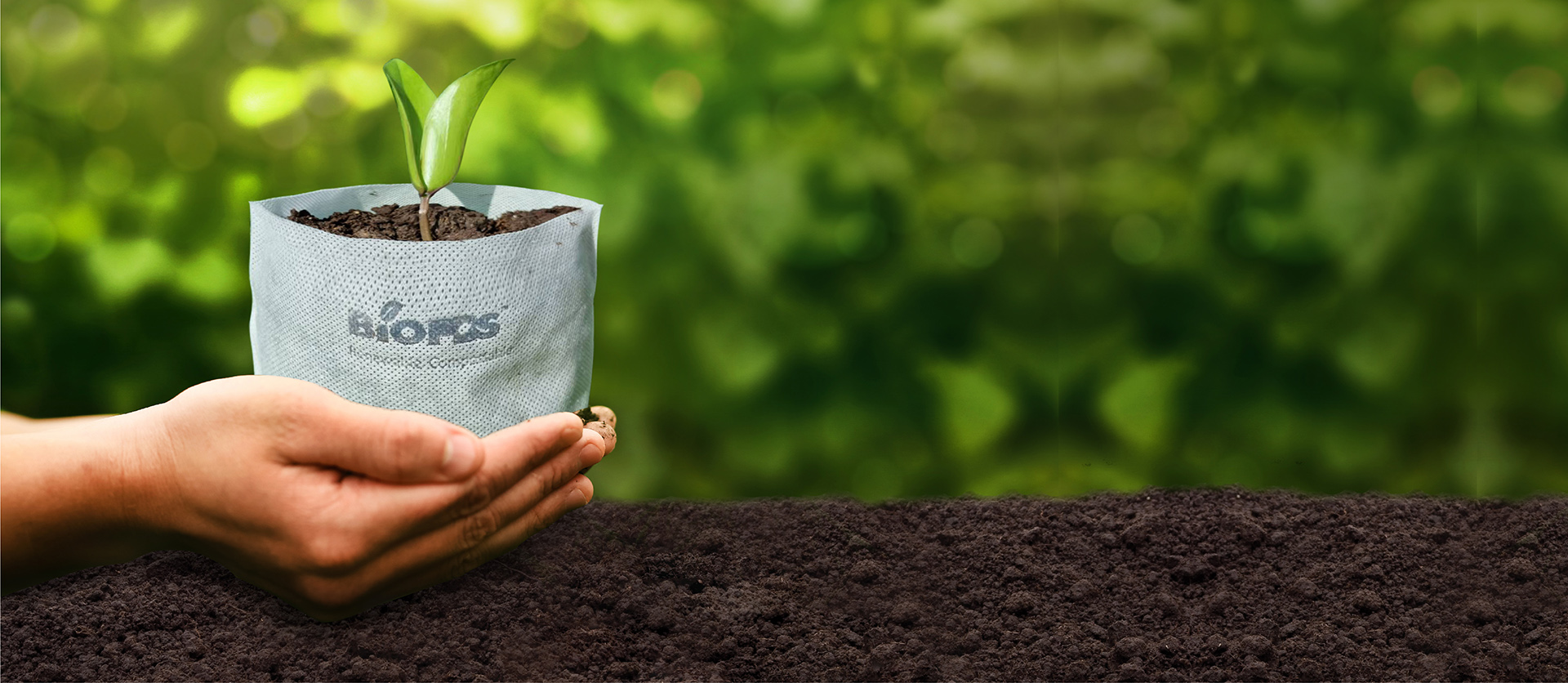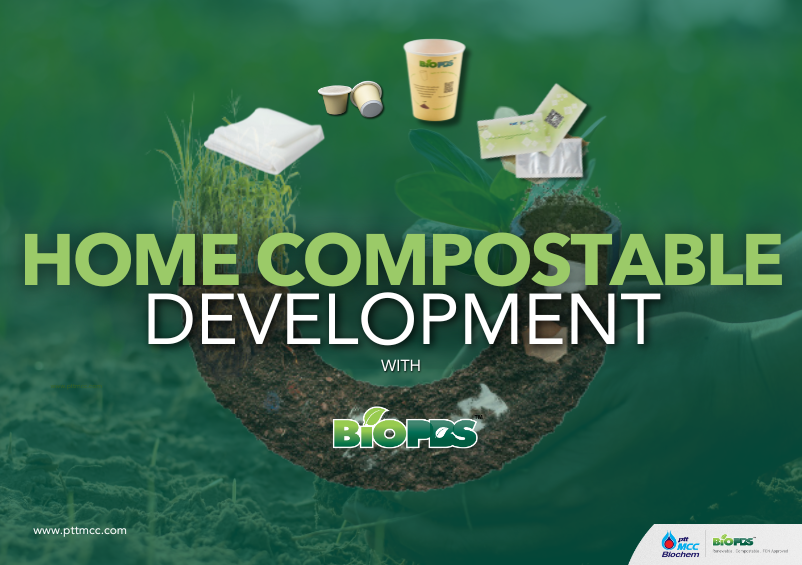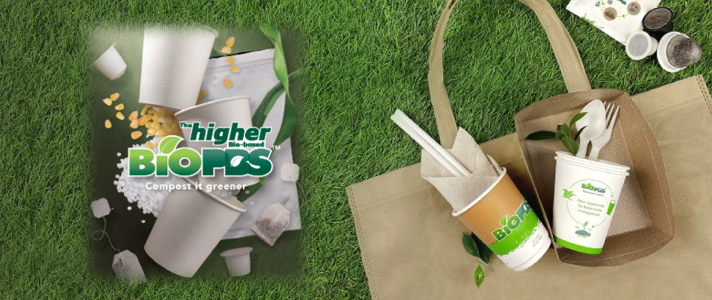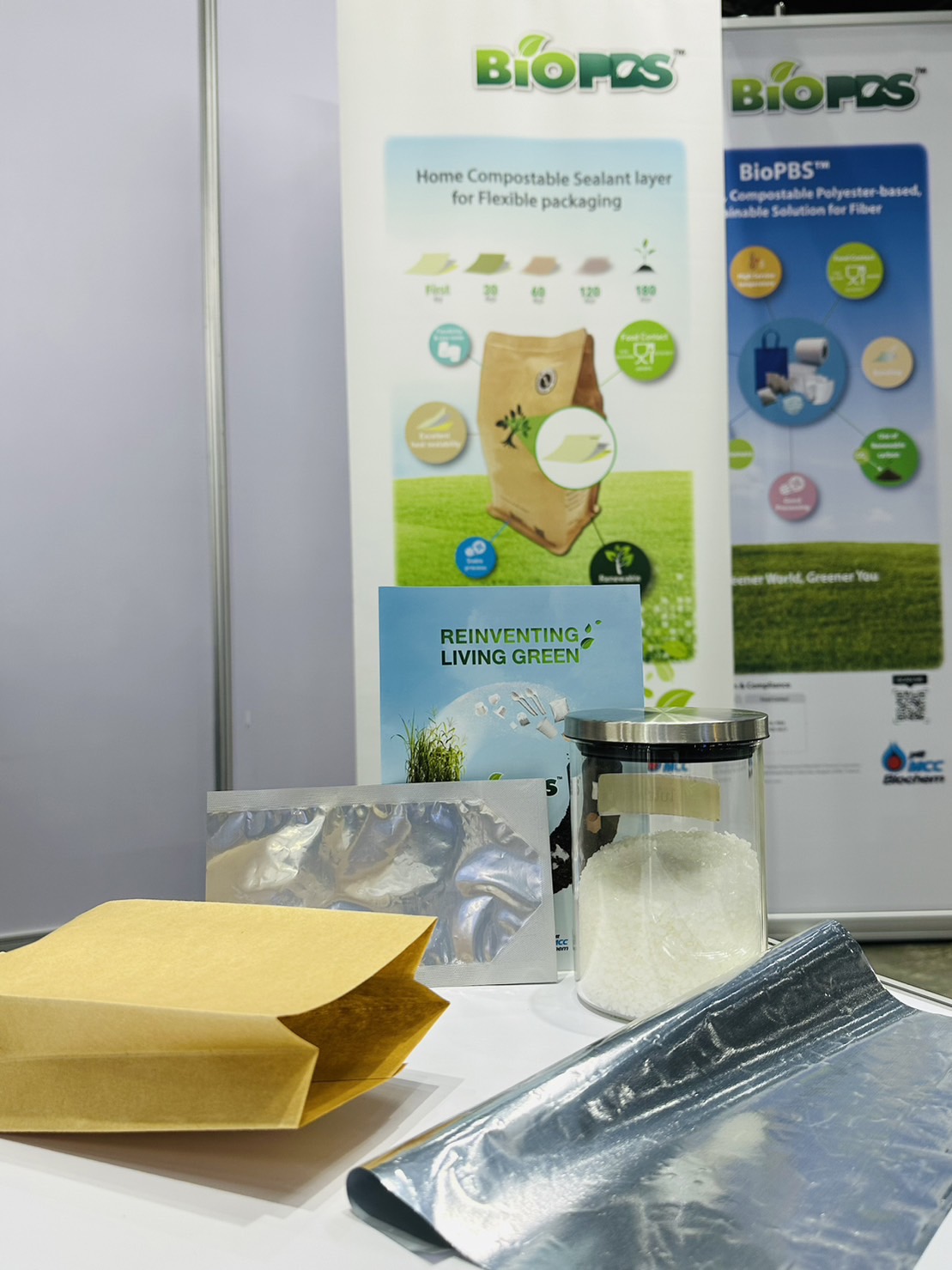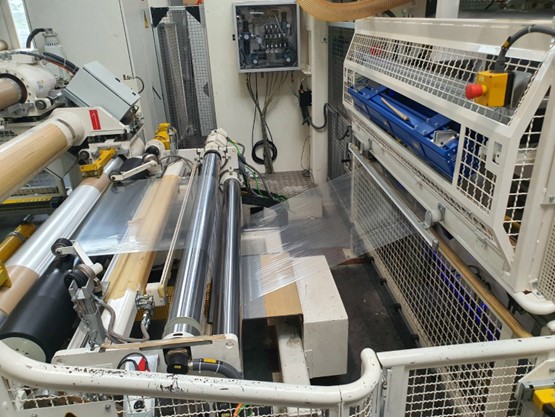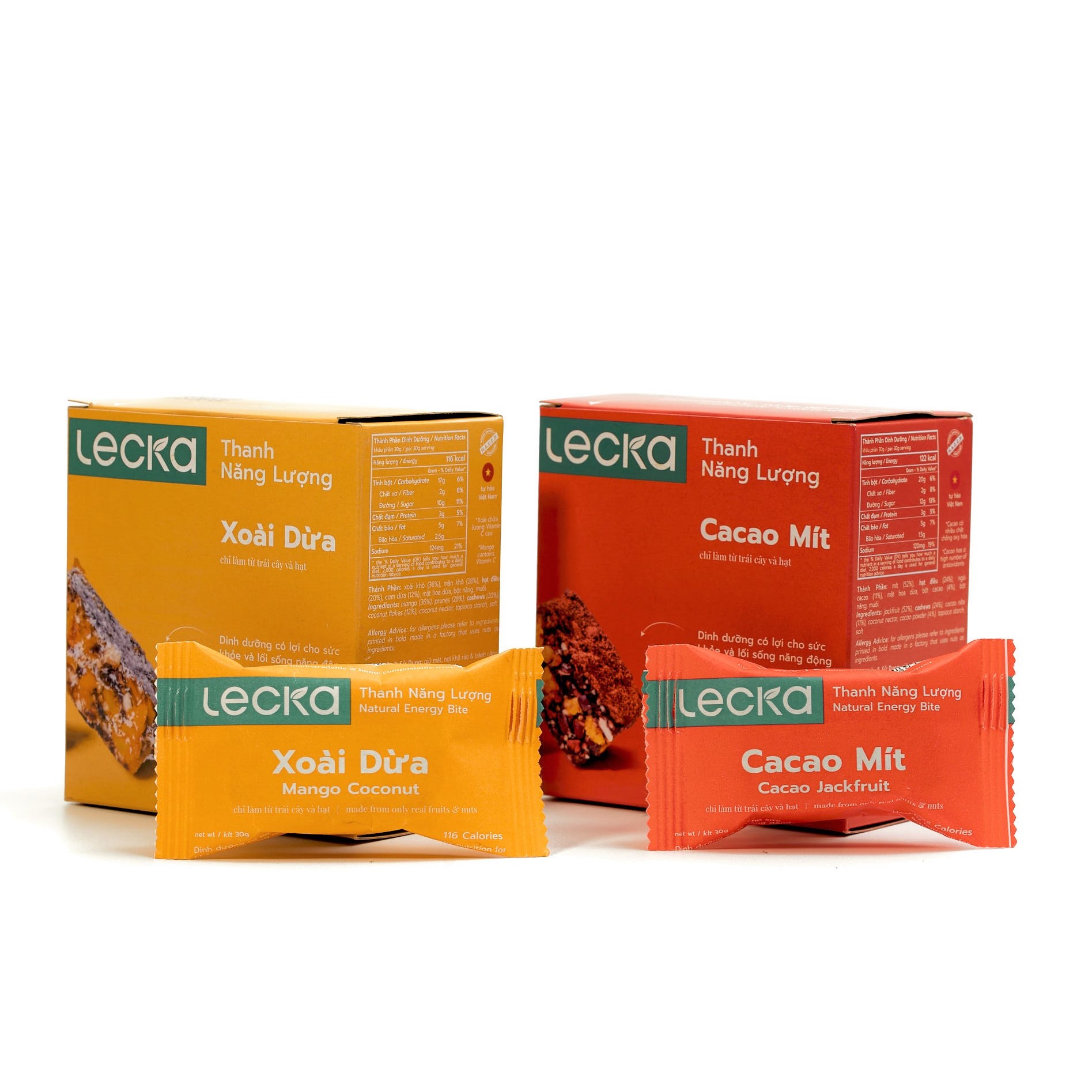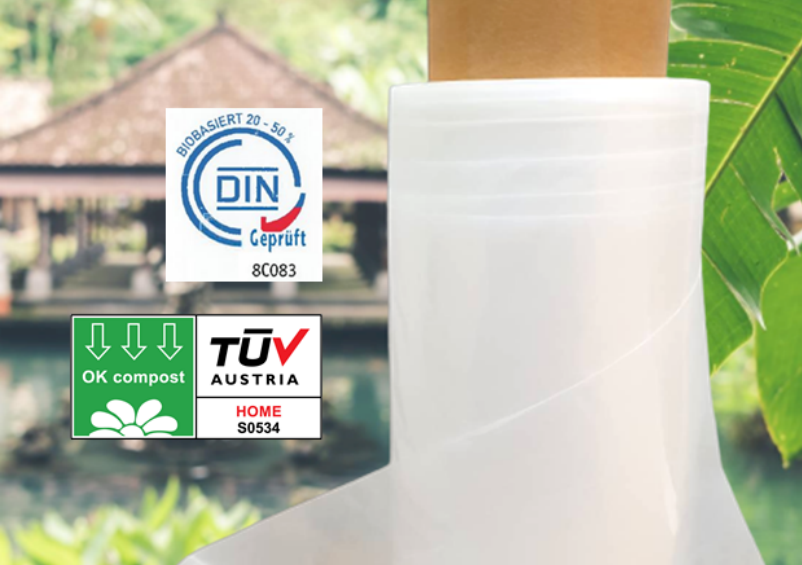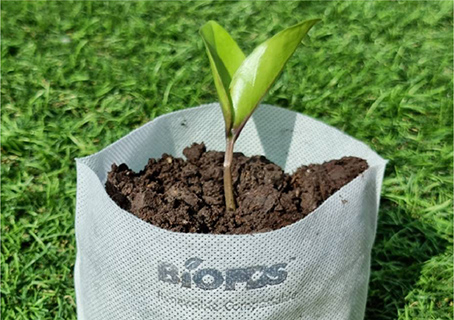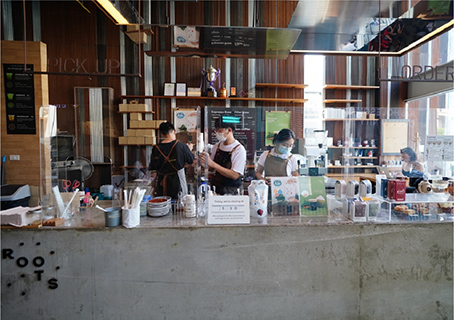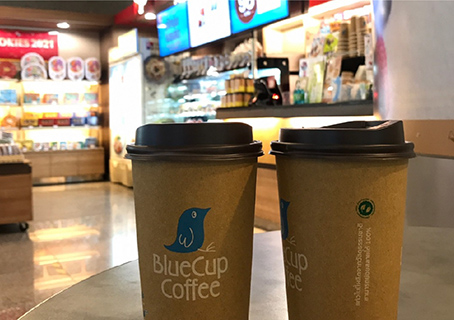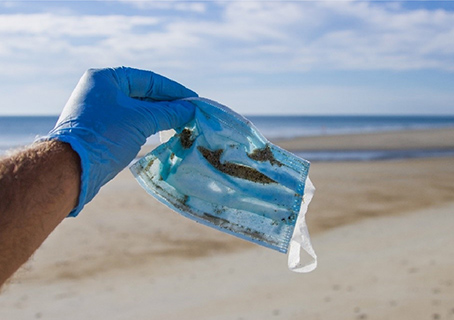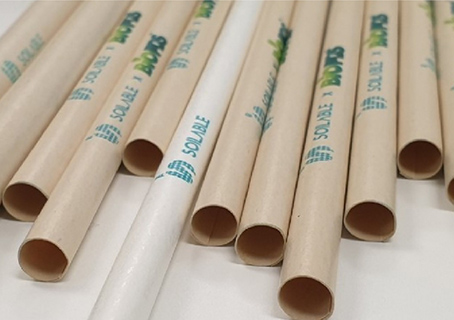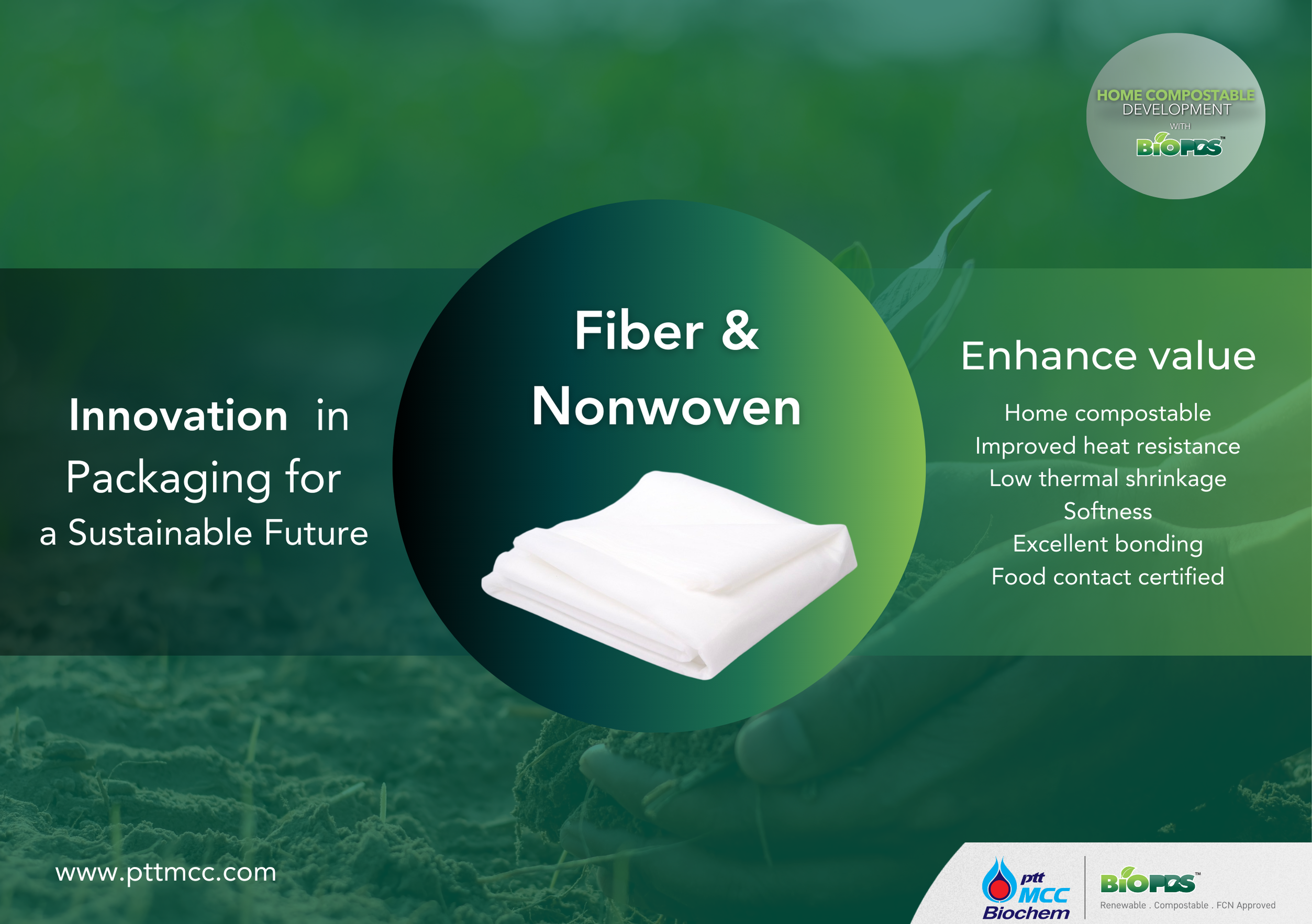
Home compostable development with BioPBS - Fiber application
PTT MCC Biochem Co., Ltd. (PTTMCC), the authorized manufacturer of bio-based polybutylene succinate (Bio-based PBS, FZ grade) and polybutylene succinate co-adipate (Bio-based PBSA, FD grade) from Mitsubishi Chemical Corporation under the brand name BioPBS™, is committed to improving and developing new products for home compostable fiber applications. This is part of our sustainability initiative and our intensive focus on home compostable end-of-life solution.
The emerging trend and growing demand for compostable fiber and nonwoven fiber have been influenced mainly by regulation. In particular, the Plastic & Plastic Waste Regulation (PPWR) aims to redefine and reduce packaging and packaging waste in Europe, with industrial compostability contributing significantly to a circular economy and waste reduction (European Bioplastics, 2024).
Secondly, brand owners are driving the rapid growth of compostable demand by responding to increasing public awareness of environmental issues and consumer demand for sustainable products (Inven, 2024).
Thirdly, the issue of microplastic pollution in soil remains a significant concern. Soil contamination with microplastics can lead to greenhouse gas emissions and other environmental problems, making it an urgent issue that requires immediate attention (Kopitar et al, 2022).
As a result, compostable solutions offer a promising approach to addressing these challenges.
PTTMCC's BioPBS™ offers a range of bio-based content options and provides an effective end-of-life solution through its compostability in both industrial and home composting environments. BioPBS™ in fiber applications can contribute to the reduction of methane emissions and improve industry sustainability and environmental responsibility.
Market insights
The rising trend is not only evident from the factors discussed above but is also supported by statistics from European Bioplastics. These statistics show that bioplastics have been used in a wide range of applications, from flexible packaging to electronics and textiles. Notably, fibers have emerged as a key application area, experiencing significant growth from 2022 to 2023. This growth is estimated to have increased by approximately 40% during this period (European Bioplastics, 2024).

Key regions for nonwoven industry
As shown in Figure 2, the three primary regions for nonwoven production are Asia, North America, and Europe. In 2022, global nonwoven production reached approximately 16.5 million tonnes. Asia emerged as the dominant region, accounting for roughly 7 million tonnes of production. North America and Europe followed, contributing approximately 5 million tonnes and 3 million tonnes, respectively (Edana, 2024).

The EU market is a strategic focus for PTTMCC due to its stringent environmental regulations and increasing demand for sustainable products. The region’s emphasis on circular economy principles aligns well with sustainable attributes of BioPBSTM
Absorbent hygiene was the primary application for EU producers, while food filtration and wipes were experiencing significant growth. Furthermore, food filtration (drinkable filtration) emerged as a new sub-category, accounting for 47,047 MT in 2023 with wet-laid technology remained the dominant approach in this field (Edana, 2024).

PTTMCC Leads the Way in Sustainable Nonwovens with BioPBSTM
Fueled by market trends and the growing demand for sustainable solutions, PTTMCC is actively developing innovative solutions for the fiber and nonwoven applications market. BioPBSTM, our partially bio-based material, offers both industrial and home compostable, plays a key role in these advancements.
- Generation 1: This readily available solution utilizes a blend of BioPBSTM grades, achieving home compostability as its primary goal. It's particularly suited for applications like food filtration, absorbent hygiene, and wipes.
- Generation 2 (Coming Soon): This next-generation solution will combine BioPBSTM with a mixture of biodegradable polyesters, aiming to achieve not only home compostability but also high heat resistance and low thermal shrinkage. This advanced offering will primarily target the food filtration market.
PTTMCC: Driving a Greener Future
PTTMCC is committed to being a global leader in the green industry. Our unwavering determination to create a sustainable future that fuels the development of readily adopted bio-chemical innovations, such as BioPBSTM.
Feel free to contact us directly for further information via info@pttmcc.com

References:
European Bioplastics (2024), “Comments on compostable plastics”
European Bioplastics (2024), Bioplastics market development update 2024
https://www.european-bioplastics.org/market/
Inven (2024), “Top 25 Companies in Compostable Packaging Industry”
https://www.inven.ai/company-lists/top-25-compostable-packaging-companies
Edana (2024), “2023 Nonwoven Market Insights”
Kopitar, et al. (2022), Department of Textile Design and Management, Faculty of Textile Technology, University of Zagreb, Croatia “Biodegradable Nonwoven Agrotextile and Films – A Review”.
https://www.mdpi.com/2073-4360/14/11/2272

